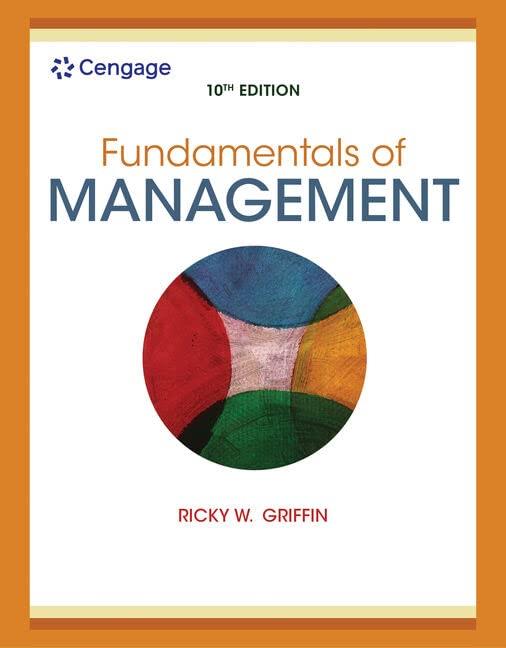Question
To what extent does classroom management involve moral decisions, both on the part of the teacher and on the part of the students? Use Kohlbergs
To what extent does classroom management involve moral decisions, both on the part of the teacher and on the part of the students? Use Kohlberg’s theory to support your answer. And view these videos . There will be a peer reply to this discussion at least 150 words). https://mediaplayer.pearsoncmg.com/assets/establishing_practicing_rules_iPad https://mediaplayer.pearsoncmg.com/assets/establishing_rules_and_procedures_12_1
Classroom management is important when it comes to having control as a teacher. As well as making sure students feel safe in the classroom as well and making it stay like that the whole school year. "Classroom climate has been widely researched, and in environments where the climate is positive, students are more motivated, their interactions with their teachers and peers are more positive, they are less likely to be disruptive, and they learn more" (Eggen, 2020, pg.129).
Moral decisions are involved when it comes to classroom management. Kohlberg's theory is described in 6 stages. In Stage 1, "if a person is caught and punished, an act is morally wrong; if not, the act is right" (Eggen, 2020, pg. 129). A teacher should be able to set rules for the classroom and make it known what the consequences are if someone doesn't follow a set of rules. As for Stage 2, the student's behavior is determined by the consequences. "The individual focuses on receiving rewards or satisfying personal needs" (Sanders, 2023). In continuation, in Stage 3, students' behavior is determined by social approval. This is where students want approval from their classmates. This is where the students understand the expectations and the rules that the teacher has given.
Furthermore, in Stage 4, "They don't follow rules for their own sake, rather they follow rules because the rules are principles agreements" (Eggen, 2020, pg.130). This is where the teacher should make it a point from Day 1 to the importance of rules. However, students as well know and consider that they need to follow the rules. Stage 5, this is where they begin to take into account the different opinions and beliefs of others. In order to have a positive classroom, the teacher should be able to set the expectation that every student's comments, responses, or opinions be respected. Lastly, for Stage 6, "people follow these internalized principles of justice, even if they conflict with laws and rules" (Kendra Cherry, 2022). Kohlberg's theory has played a tremendous role even today. Teachers should be able to create a safe learning environment. Classroom management does involve moral decisions, however in the best interest of the students. Teachers should set the rules and their importance of them and what consequences they would deal with if they are broken.
Step by Step Solution
There are 3 Steps involved in it
Step: 1
Moral decision Involvement of Moral Decisions in Classroom Management Effective classroom management aims to develop learners selfregulation create a conducive classroom environment and allow maximum ...
Get Instant Access to Expert-Tailored Solutions
See step-by-step solutions with expert insights and AI powered tools for academic success
Step: 2

Step: 3

Document Format ( 1 attachment)
65535df09261d_548489.docx
120 KBs Word File
Ace Your Homework with AI
Get the answers you need in no time with our AI-driven, step-by-step assistance
Get Started


